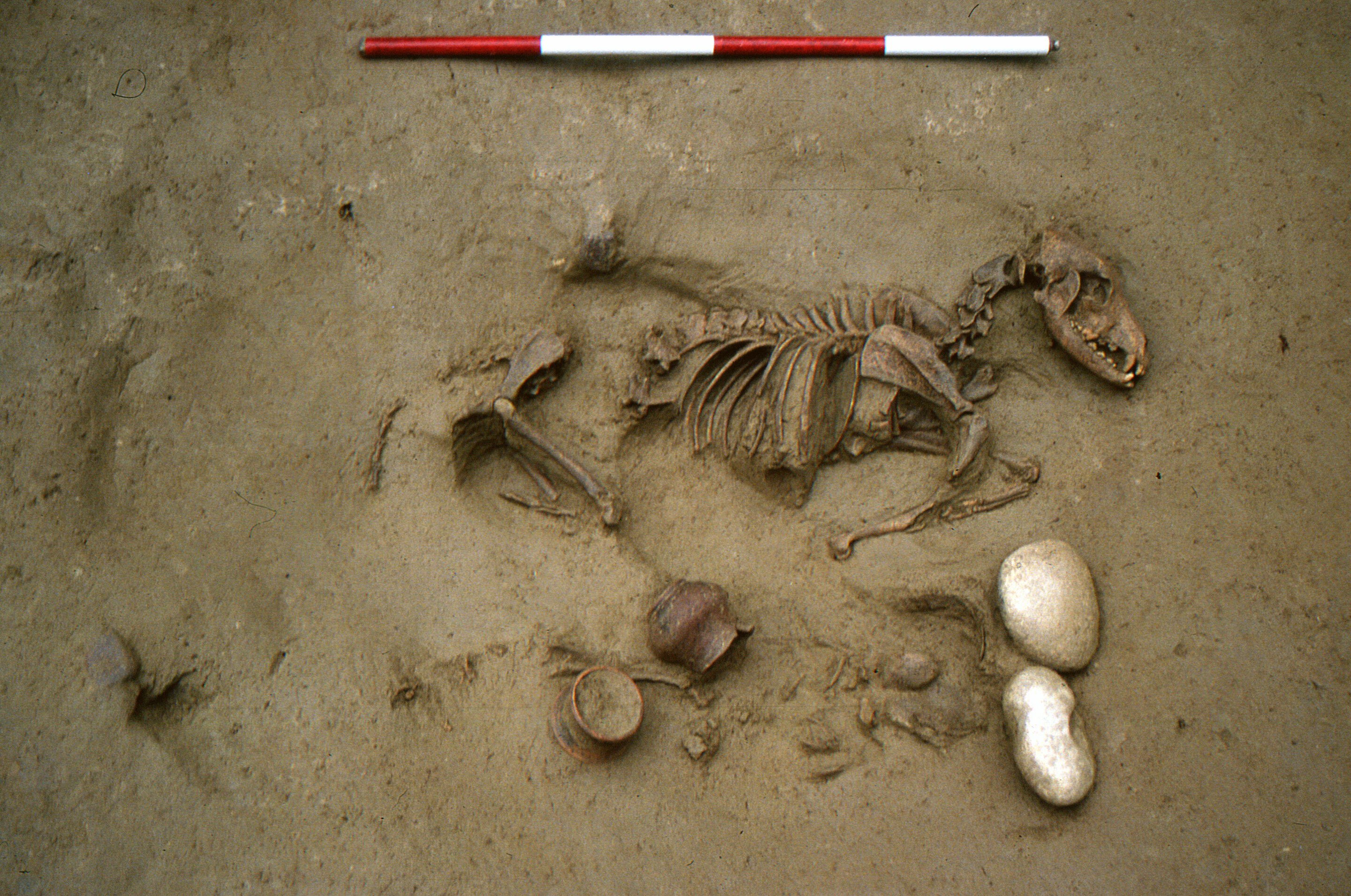Some people from an ancient community in what is now northern Italy were interred with animals and animal parts from species such as dogs, horses and pigs. The reasons remain mysterious, but might indicate an enduring companion relationship between these humans and animals, or religious sacrificial practices, according to a study published in PLOS ONE by Zita Laffranchi from the University of Bern, Stefania Zingale from the Institute for Mummy Studies, Eurac Research Bozen, Umberto Tecchiati from the University of Milan, and colleagues.
Of the 161 people buried at Seminario Vescovile, an archaeological site in Verona from the third to first century BCE, 16 were buried with some kind of animal remains. Some of the graves contained the remains of animals often eaten by people—including many pigs, a chicken and part of a cow—which may have represented food offerings to the dead. But four of the people buried on the site were buried alongside the remains of dogs and/or horses, which are not commonly eaten.


